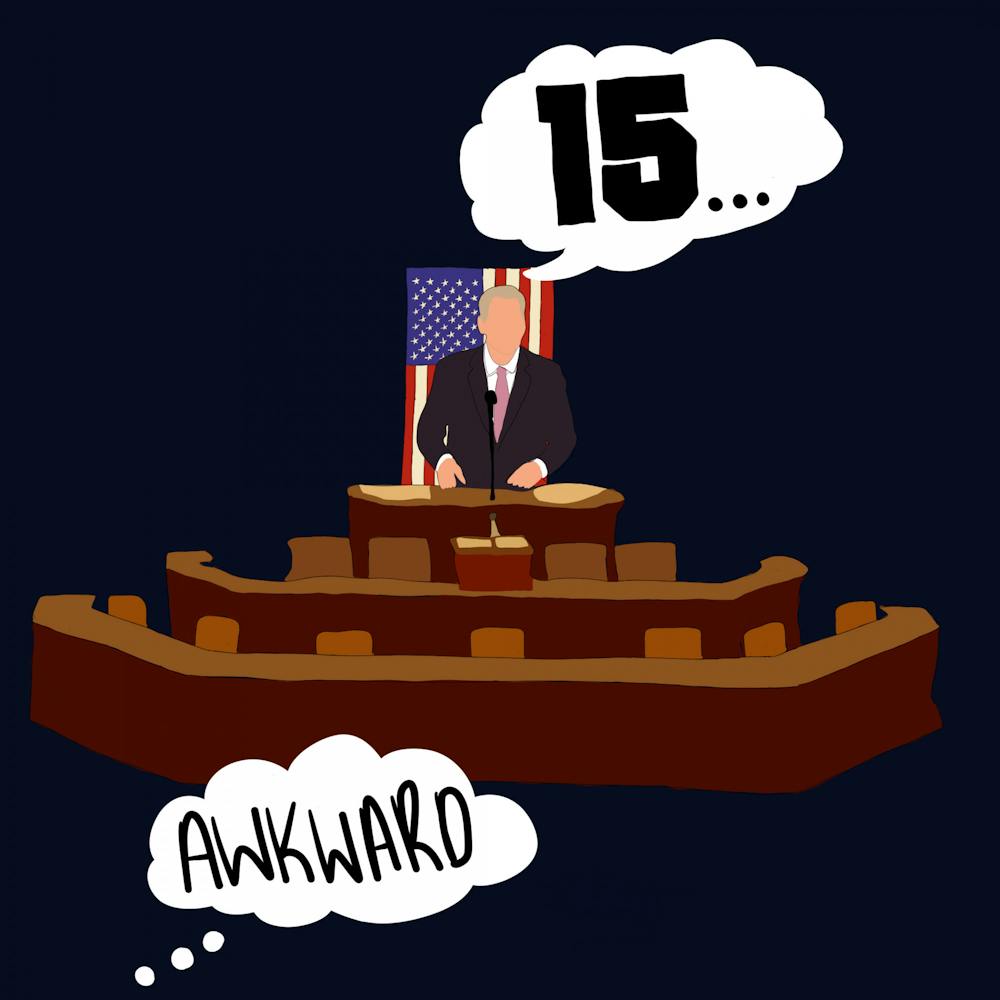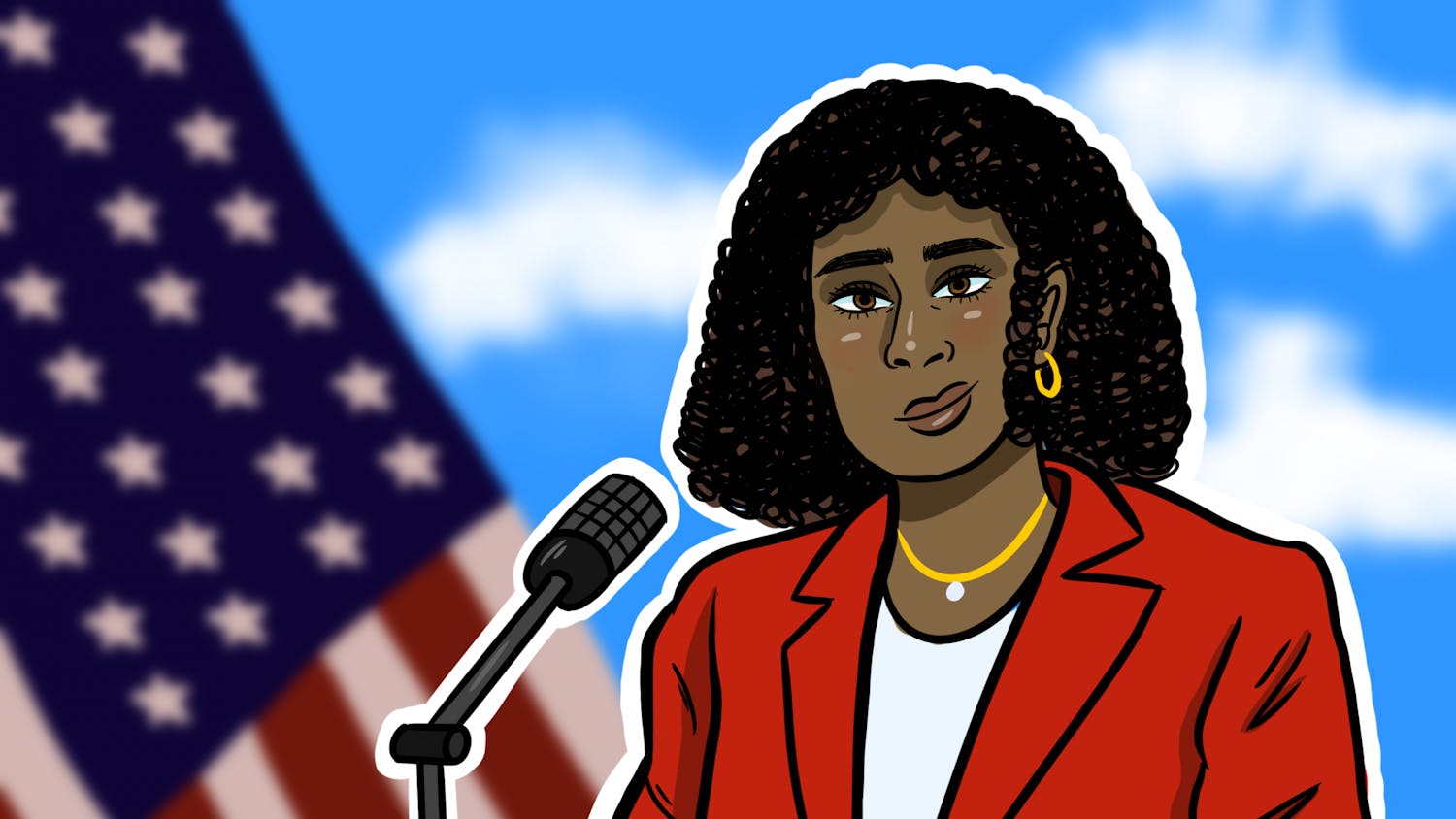The first person from Gen Z was elected to Congress this past November, but Maxwell Frost (D-Fla.), among other newly elected officials of the 118th Congress, was not able to be sworn in until the Speaker of the House of Representatives was decided, which didn’t happen until Jan. 7.
While college-aged students are watching their generation begin to enter politics, government processes such as the election for House Speaker can be confusing and seem unstable because it can take a day or longer to elect one person.
Kathleen Sullivan, an associate professor of political science at Ohio University, said Kevin McCarthy’s (R-Cal.) historic run for House Speaker, following Nancy Pelosi’s announcement that she would step down, revealed how although certain government procedures and processes are pro forma, or a courtesy or typical procedure, there are situations that make people pay attention, and for good reason.
“Normally we don’t pay much attention to this [election] because it’s basically whichever party is the majority in the House,” Sullivan said. “It’s the person who will quite easily become the Speaker of the House and so when that’s not happening per usual, then it’s an indication that something’s going on.”
It took five days and 15 ballots, which is the most it has taken to elect the Speaker since before the Civil War, for Republicans in the House to elect McCarthy for the speakership. Candidates to become Speaker are chosen by other representatives and require a majority of votes from present members, according to the Congressional Institute.
McCarthy, the former minority leader in the House, struggled to receive votes from 20 of his Republican peers. Representatives who voted against McCarthy requested some things from him as Speaker, according to NPR. They want less government spending and less power given to the Speaker as well as more of that aforementioned power to be transferred to the Republicans.
“When you vote for your congressman, you want them to have a certain level of power and not just [be] completely like, ‘Oh, this is what my party tells me to do, that’s what I’m going to do,’” said Seth Rogers, a sophomore studying political science. “And as far as I’m concerned, that’s what the 20 people that were holding out were doing – thinking for themselves.”
A representative does not have to vote for a candidate and can declare themself “present,” still adding to the ballot, but lowering the majority needed to win all 435 representatives in the House and voting for a candidate, the majority is 218. McCarthy couldn’t reach a majority for 15 rounds – an already somewhat difficult feat because as a Republican candidate, McCarthy could only lose four Republican votes to secure the speakership, according to NPR.
“In this case, what we’re seeing is this split within the Republican Party,” said Sullivan. “The Republican Party has been going through a realignment for years. It’s not uncommon for parties to have splits, this has happened throughout history.”
Students studying political science such as Rogers, a member of the Political Science Majors Association, said this was the first time he watched an intense debate over the speakership.
“Oftentimes, it seems to me that the Speaker of the House seems to be a given person,” Rogers said. “So I started looking into it just to see if this was normal that a Speaker race could be wild like this and looking back through history.”
The longest House Speaker election took place before the 34 Congress was sworn in in 1856, according to the History, Art and Archives of the United States House of Representatives. It took representatives two months and 133 ballots to elect Nathaniel Banks, a Republican representative from Massachusetts. There were conflicts and debates over slavery and anti-immigration attitudes, which contributed to the lengthy election.
The Speaker is the “political and parliamentary leader” of the House, according to the History, Art and Archives. The person in the role is also third in line for the presidency should the president be removed from the office, following the vice president.
The history of the role and what it takes to elect someone for it, along with other government positions and processes, is being examined and discussed by younger people. Jane Roche, a first-year graduate student studying college student personnel, said her younger sister has started getting involved in political discussion and was asking questions about the recent Speaker election.
“I think because of the chaos of the speakership election, she was a lot more tuned in and was just genuinely asking us,’ what’s going on?’” Roche said.
Roche studied political science as an undergrad and said she thought she had a strong understanding of the process of electing a House Speaker. Before McCarthy was officially elected, however, Roche found herself confused about the process.
Although Roche said her confusion “exposed a blind spot” in her knowledge, the election also showed vulnerabilities in the U.S.’s political system.
“It definitely exposes some of our weak spots,” Roche said. “And I’m not saying that these things outweigh each other or are equal in any way, but while it exposes weak spots, it also gives exposure to kind of what’s going on to maybe a generation who’s just starting to get into politics.”
Moments in politics that cause people to turn their heads and pay attention can create educational opportunities and Sullivan said learning about the government can also remove tensions among political differences.
“These moments can be a real history lesson,” Sullivan said. “They can also be real lessons in the Constitution. And what happens in a healthy constitutional democracy is that we all come together regardless of ideology and learn more about this shared project that we are engaged in.”






